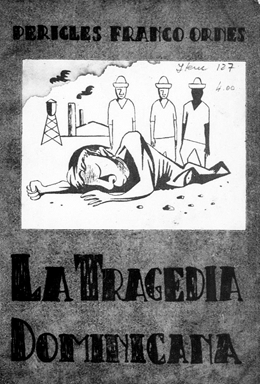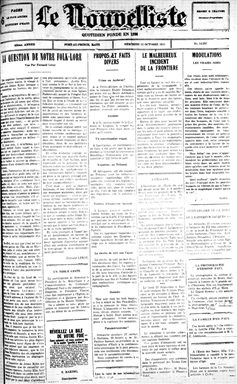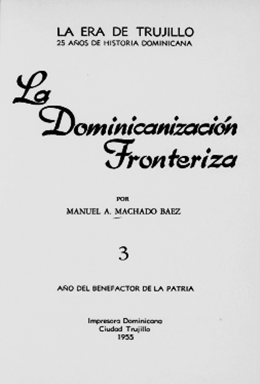"The 1937 Massacre" by Edward Paulino, Ph.D.
Paulino is Assistant Professor of History at John Jay College in New York. He will soon publish a book about Dominican-Haitian relations and the massacre of 1937.
The 1937 Haitian Massacre was a genocidal campaign ordered by the Dominican dictator Rafael Trujillo in late September and the month of October where army soldiers and conscripted civilians targeted long-term Haitian and Haitian-Dominican communities in the Dominican Republic particularly along the Dominican- border region.
If Dominican authorities censored any news of mass murder Haiti did not and its newspapers, like Le Nouvelliste (13 October 1937) and its article "Le Malheureux Incident de la Frontière" (The Unfortunate Border Incident) reported the "inexplicable killings next door" and how refugees, really survivors were streaming into the country such as the "eighteen currently being cared for at the Okap Hospital, [which] demonstrates what is nearly impossible to recognize." Like other Haitian newspaper reports the tone of the article was cautious so as not to fuel tensions between the two countries.
Nevertheless, the genocidal killings gave anti-Trujillo exiles another reason to denounce the regime. Political exiles, like the founder of the Popular Socialist Party in the Dominican Republic (the precursor to the Dominican Communist Party), Pericles Franco Ornes, settled in Chile and with a prologue written by Pablo Neruda, published La tragedia dominicana, (The Dominican Tragedy) in which he references the massacre like many exiles of that period as a bloody reminder of the regime’s brutality.
Manuel A. Machado Báez’s La dominicanización fronteriza (1955) (The Dominicanization of the Border) shown below was part of a multi-volume publication series as part of the celebrations in 1955 that marked Trujillo’s twenty-five years in power. Báez’s is one of the few book-length sources of comprehensive government statistics of the state project that served to legitimate the government’s post-massacre attempt to physically and culturally claim the Dominican borderlands. This book is representative of a legacy where today Dominican government policies continue to reject Haitians and their descendants from belonging to the Dominican body politic and its problematic melting pot.


